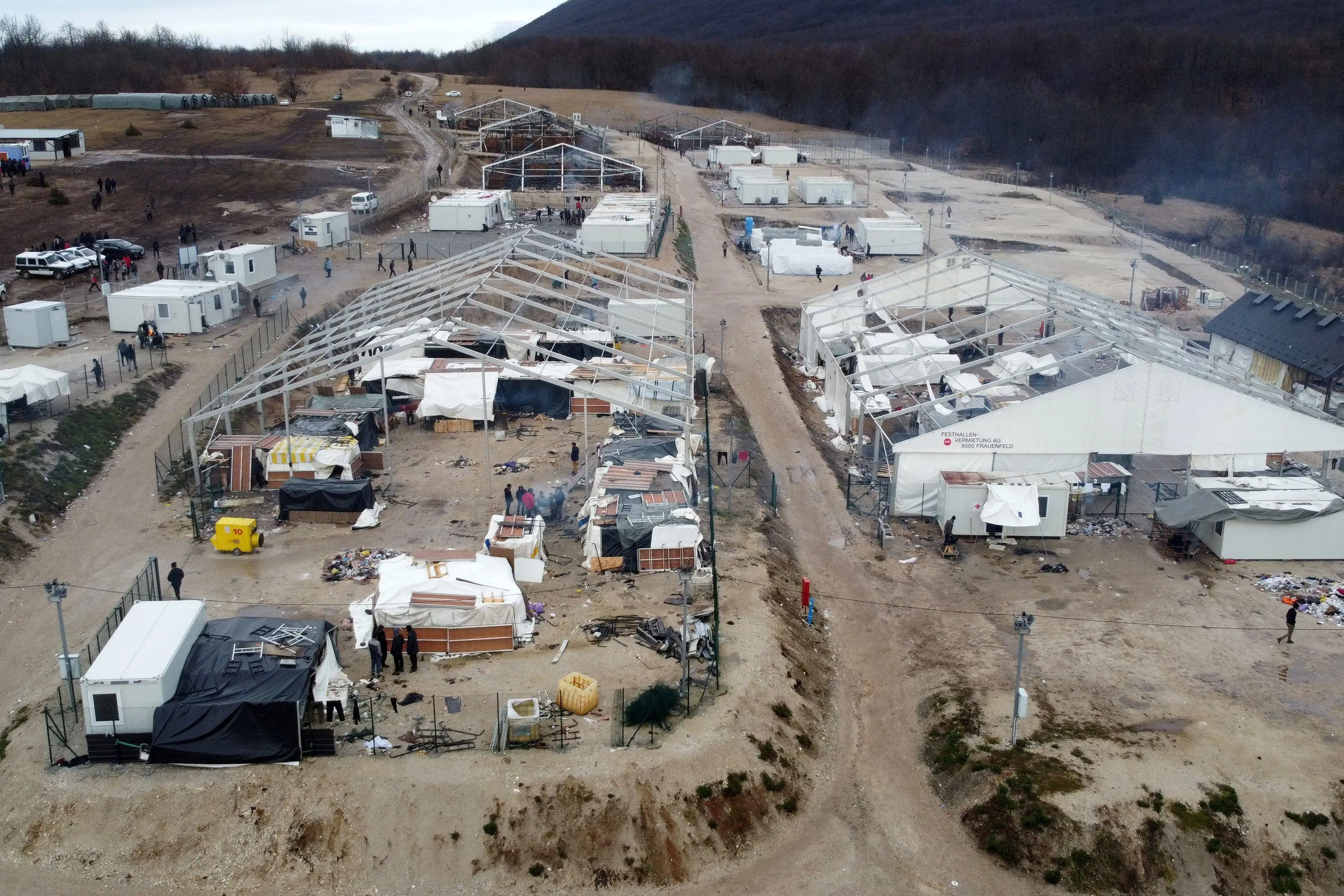PHOTO
While the world is preoccupied with outrageous scenes in the US Capitol and the economic consequences of new lockdowns to curb the spread of virulent new variants of the coronavirus, unspeakable human suffering on the fringes of Europe has gone largely unnoticed.
On Dec. 23 the Lipa refugee camp in the canton of Una-Sana in northwestern Bosnia-Herzegovina burned to the ground, torched by desperate occupants who saw no way out. It evoked memories of Moria on the Greek island of Lesbos, which burnt down in September last year, leaving 13,000 refugees without shelter.
Lipa had been set up last April, when Bosnian authorities and refugees using the Balkans route to Europe were caught unawares by sudden border closures aimed at stemming the pandemic tide. It housed about 2,500 mostly young unaccompanied men in a makeshift tent city lacking running water, not ideal during a pandemic when hygiene is pivotal, and with no protection from winter weather.
The EU, which prides itself on its humanitarian values, nevertheless took 12 days to appropriate 3.5 million euros to support Bosnia in its efforts to address the issue, and it was several more days after that before Bosnian authorities installed heated tents to rehouse some of the refugees. That is a long time to leave people without adequate shelter or clothing in sub-zero temperatures and heavy snow.
Outrage was voiced by Josep Borrell, the EU’s High Representative for Foreign Affairs, and Janez Lenarcic, the European Commissioner for Crisis Management. Borrell deplored the lack of winter-proof accommodationas unacceptable, Lenarcic said it was a humanitarian disaster that could have been avoided. But what took them so long? It had been evident since last summer that conditions in Lipa would be unsustainable in winter.
Peter Van der Auweraert, the Western Balkans coordinator of the UN’s International Organisation for Migration (IOM), identified nimbyism — “not in my back yard” — as a key obstacle to housing the Lipa refugees in the nearby city of Bihac or elsewhere. Many Bosnians who live close to refugee camps object to the influx of refugees. He argues that a centralized approach may be safest for the local population.
It is easy to condemn the Bosnian authorities for inaction and lack of compassion, but these are difficult issues. As Auweraert points out, IOM is working with the local authorities to provide material assistance via the EU, the Red Cross and other agencies, as well as working toward internal political solutions.
In December 2018 the UN approved the Global Compact for Safe, Orderly and Regular Migration. Admittedly there was no pandemic then, but that is no excuse for exposing human beings to inhumane conditions. For the international community, and the EU in particular, the issue of refugees and migration is not going to go away. For as long as there is conflict and poverty in the developing world, the relative peace and riches of Europe will be a magnet for many striving for peace and prosperity. The EU needs a migration plan, and the sooner the better.
- Cornelia Meyer is a Ph.D.-level economist with 30 years of experience in investment banking and industry. She is chairperson and CEO of business consultancy Meyer Resources. Twitter: @MeyerResources
Copyright: Arab News © 2021 All rights reserved. Provided by SyndiGate Media Inc. (Syndigate.info).





















